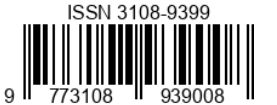Mistakes in the Use of Words in the Narrative Text of Grade IX Students of SMP Negeri 3 Dharma Caraka Teluk Dalam
Keywords:
Errors, Word Usage, Narration TextAbstract
The problem in this study is that the use of words in narrative text written by students still does not fully follow the use of good and correct language. The purpose of this study is to describe word usage errors in narrative texts of students of class IX-A SMP Negeri 3 Dharma Caraka Teluk Dalam. This type of research is qualitative research with descriptive method. The data source in this research is narrative text written by students. The results showed that word usage errors in students' narrative texts tend to be dominant in word addition (17 errors) and word omission (5 errors). These errors are influenced by students' lack of knowledge in using good and correct language. Therefore, it is suggested to (1) teachers to pay more attention to students' writing, especially in the use of words to avoid errors in adding and omitting vocabulary; (2) students or writers, in expressing written ideas, need to pay attention to the use of words so that the words written do not cause errors in meaning that make readers not understand; and (3) to further researchers, to be used as a reference or material in conducting relevant research.
References
"Come on, Ahmad. (2021). Writing Creative Narratives. Yogyakarta: CV Budi Utama.
Alharthi, S. (2021). From instructed writing to free-writing: A study of EFL learners. SAGE Open, 11(1), 21582440211007112.
https://doi.org/10.1177/21582440211007112
Balaban, N., Mohyuddin, G. R., Kashi, A., Massarweh, A., Markel, G., Bomze, D., ... & Meirson, T. (2023). Projecting complete redaction of clinical trial protocols (RAPTURE): redacted cross sectional study. bmj, 383.
https://doi.org/10.1136/bmj-2023-077329
Barjesteh, H., & Ghaseminia, M. (2023). Effects Of Pre-Listening Task Types On The Development Of Efl Learners’listening Comprehension Ability. International Journal of Listening, 37(2), 156-170.
https://doi.org/10.1080/10904018.2019.1654867
Busri, Hasan and Badrih. (2020). Applied Linguistics: Concepts of Learning and Cutting-Edge Linguistic Research. Malang: Literasi Nusantara.
Gereda, Augustine. (2020). Indonesian Language Skills. West Java: Edu Publisher.
Hammerton, G., & Munafò, M. R. (2021). Causal inference with observational data: the need for triangulation of evidence. Psychological medicine, 51(4), 563-578.
https://doi.org/10.1017/S0033291720005127
Hammerton, G., & Munafò, M. R. (2021). Causal inference with observational data: the need for triangulation of evidence. Psychological medicine, 51(4), 563-578.
https://doi.org/10.1017/S0033291720005127
Hanson-DeFusco, J. (2023). What data counts in policymaking and programming evaluation–Relevant data sources for triangulation according to main epistemologies and philosophies within social science. Evaluation and Program Planning, 97, 102238.
https://doi.org/10.1016/j.evalprogplan.2023.102238
Johannessen, C. M., Longcamp, M., Stuart, S. A., Thibault, P. J., & Baber, C. (2021). The look of writing in reading. Graphetic empathy in making and perceiving graphic traces. Language Sciences, 84, 101363.
https://doi.org/10.1016/j.langsci.2021.101363
Matta, C. (2022). Philosophical paradigms in qualitative research methods education: What is their pedagogical role?. Scandinavian Journal of Educational Research, 66(6), 1049-1062.
https://doi.org/10.1080/00313831.2021.1958372
Monaro, S., Gullick, J., & West, S. (2022). Qualitative data analysis for health research: A step-by-step example of phenomenological interpretation. Qualitative Report, 27(4), 1040-1057.
https://doi.org/10.46743/2160-3715/2022.5249
Naghdipour, B. (2022). ICT-enabled informal learning in EFL writing. Journal of Second Language Writing, 56, 100893.
https://doi.org/10.1016/j.jslw.2022.100893
Safrizal, S., & Yulia, R. (2022). Developing students science literacy in adiwiyata school: case study in Padang City, Indonesia. Journal of Turkish Science Education, 19(4), 1192-1205.
https://doi.org/10.36681/tused.2022.169
Saryono, Djoko and Soedjito. (2020). The Art of Skilled Writing in Indonesian. East Jakarta: PT Bumi Aksara.
Setiawati, L. (2023). An Error Analysis of Subject-verb Agreement in Descriptive Text Writing of the Seventh Grade at MTS Ma'arif 02 Kotagajah (Doctoral dissertation, IAIN Metro).
Son, Wahyu Hanafi. (2020). Analysis of Arabic Language Errors. West Java: CV. Adanu Abigail.
Tektigul, Z., Bayadilova-Altybayev, A., Sadykova, S., Iskindirova, S., Kushkimbayeva, A., & Zhumagul, D. (2023). Language is a symbol system that carries culture. International Journal of Society, Culture & Language, 11(1), 203-214.
Yunita, Desti Alvi. 2020. Misuse of Punctuation and Vocabulary in Writing Descriptive Essays. Journal of Educational Sciences, (Online), Volume 3, No. 2,
Yunita, N. (2023). Teaching And Learning Writing Descriptive Text By Using Pairs Check Technique At The Seventh Grade Students Of SMP N 1 Tulang Bawang Barat In Academic Year Of 2022/2023 (Doctoral dissertation, UIN Raden Intan Lampung).
Downloads
Published
How to Cite
Issue
Section
License
Copyright (c) 2025 Merri Christina Zalukhu, Martin Sofianus Hia

This work is licensed under a Creative Commons Attribution-NonCommercial-ShareAlike 4.0 International License.





